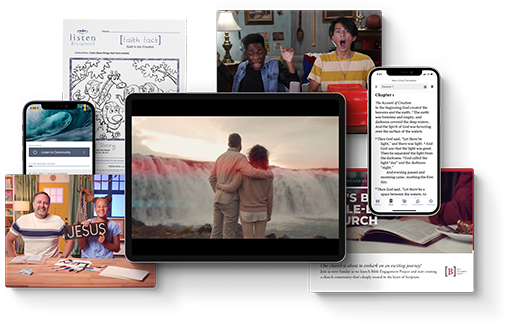The State of Bible Reading in 2020
By Christina Quick | Posted In Why It Matters
Most Americans regard the Bible positively, but few see it as the exclusive source of spiritual truth, according to the newly released “State of the Bible 2020” report from American Bible Society and Barna Group.
Sixty-eight percent of U.S. adults believe strongly or somewhat that “the Bible contains everything a person needs to know to live a meaningful life.” Yet 65% say the Bible, the Quran, and the Book of Mormon all teach the same spiritual truths.
About half of practicing Christians (48%) believe the three books are different expressions of the same truths. The report defines practicing Christians as those who identify as Protestant or Catholic, attend religious services at least monthly, and say their faith plays a very important role in their lives.
Three in 10 Americans (31%) say they never use the Bible at all, and 22% live in a household without a Bible.
A plurality of respondents (49%) said the country would be in worse shape without the Bible, while 39% believed the absence of Scripture would make no difference, and 13% thought the nation would be better off without it.
Despite theological differences, 70% of Americans say the Bible is God’s Word. However, 15% of those believe it contains historical or factual errors.
Among those who reject the Bible as God’s Word, 13% say the authors of Scripture wrote to “control, dominate, or manipulate other people.”
The 2020 edition of the annual report also examines the effects of COVID-19 on Bible engagement. In early June, 23% of Americans were interacting with Scripture in ways that influenced their choices and relationships with God and others, compared to 28% who were doing so in January. The decline in Bible engagement was most notable among women. The study’s authors suggest this could be due in part to increased childcare responsibilities falling to mothers amid shutdowns, job changes, and school closings.
Those with the highest levels of Bible engagement were most likely to turn to Scripture for stress relief.
Approximately 2 in 5 Americans (38%) said the pandemic had negatively affected their ability to worship and serve God, including 45% of city dwellers, 38% of small town residents, 36% of those in the suburbs, and 28% of people in rural areas.
Young adults were most likely to report negative effects on their spiritual lives, with 48% of Millennials and 43% of Gen Z struggling, compared to 39% of Gen X and smaller percentages of senior adults.
Nevertheless, most practicing Christians either strongly agreed (47%) or agreed somewhat (38%) that the pandemic had strengthened their faith.
Respondents who experienced the death of a household family member due to COVID-19 were more than twice as likely than others to say their Bible reading had increased over the past year; there were also notable increases among those who lost a neighbor or close personal friend to the virus.
Sixty-two percent of Americans diagnosed with COVID-19 — and 72% of those hospitalized with the illness — said their faith community had been a source of support to them through that time.
Majorities of respondents reported high to moderate stress levels related to the pandemic, though practicing Christians were the least stressed group. Just 22% of practicing Christians reported high stress, compared to 25% of non-practicing Christians, and 37% of non-Christians. The most common anxiety symptoms among all groups with moderate and high stress were sleeplessness, loneliness, a sense of hopelessness about the future, and fear or anger.
Americans dealing with pandemic stress were most likely to seek comfort in food (41%) or family (38%). About one-third (34%) turned to prayer or meditation, and 18% reached for the Bible. Smaller shares sought comfort in alcohol (13%), marijuana (10%), or prescription drugs (9%).
Those with the highest levels of Bible engagement were most likely to turn to Scripture (70%) for stress relief, followed by prayer (65%) and family (45%).
Respondents who had been hospitalized with COVID-19 were 29% more likely than others to say they desired greater Bible engagement. Having a family member or a close friend diagnosed with the coronavirus was also associated with an increased desire for more Scripture (19% and 13%, respectively).
As these findings reveal, the pandemic presents new challenges for churches and Christ followers, as well as new opportunities for effective ministry. There has never been a better time to open the Word of God and proclaim the good news of hope in Jesus.


